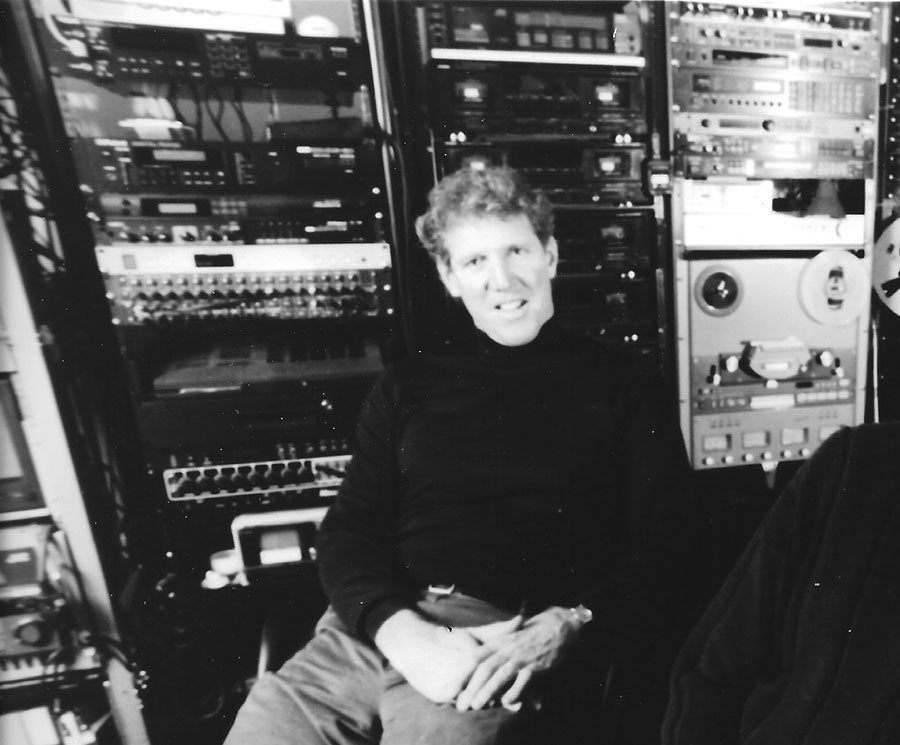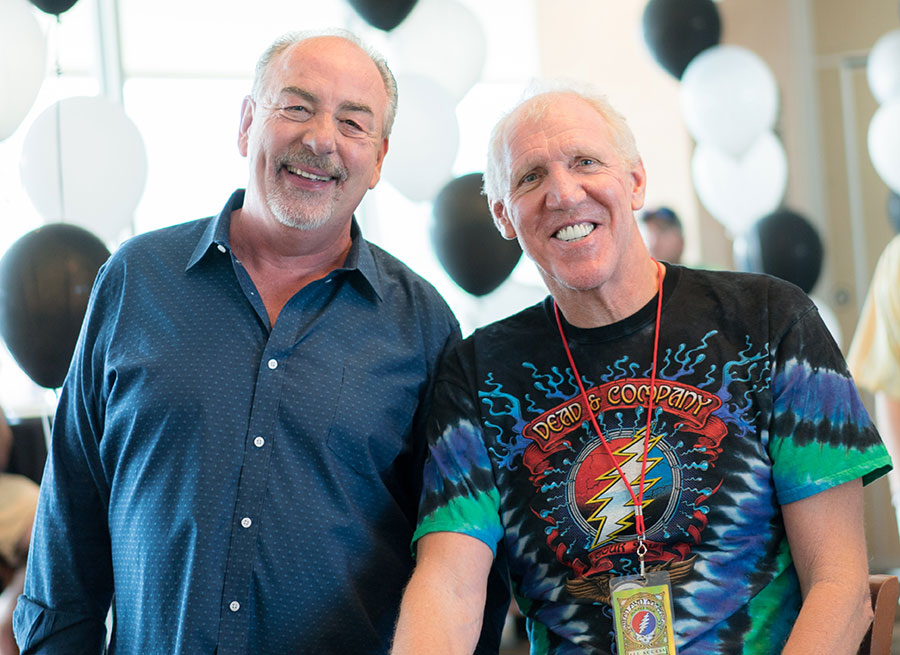Bill Walton, the NBA Hall of Famer who was famously “the biggest Deadhead in the world,” died on May 27, 2024, from cancer at 71.
In the ’70s, the 6-foot 11-inch athlete embraced the counterculture. His image with the public was anti-establishment—“Gee, he has long hair, he wears a bandana and isn’t he somehow tied into the Grateful Dead?” The years mellowed the gregarious Walton. In the mid-’90s, the basketball legend left the beard behind for a suit and tie, becoming a sportscaster. But he still loved music.
“More than ever—I’ve taken up piano,” he said as he carried his Roland keyboard to the bus after analyzing a Denver Nuggets game at McNichols Arena. “And I’m so proud to be a Deadhead. I’m one of those guys who jumps up and down and pumps his fist in the air and says, ‘Yeah, I’m with them!’ My favorite Dead show is the next one. I’ve been to about 600 of them, which is not that many, considering that I’ve been going for 25 years, only 25 a year. I’ve been to all the shows in Colorado.
“It’s always such fun. It’s like being around (Larry) Bird and (coach John) Wooden—you know it’s going to be remarkable because of their professionalism and energy and commitment to be great every time. They can turn the worst situation into a magic moment.”
Walton’s Men Are Made in the Paint, on New Alliance Records, was a spoken-word double-CD. He’d recorded his impressions of basketball and how the game serves as a metaphor for winning in life, too. His 2½ hours of expertise were sprinkled with musical interludes performed by ex-Doors keyboardist Ray Manzarek. Jerry Garcia and Mickey Hart of the Dead threw in the liner notes.
Walton’s connections with the Dead first gained notoriety in 1978, when he played drums on stage with the band in Egypt. “My teammates in Portland were in training camp then,” he recalled. “They saw a photo on the front page of the newspaper and didn’t like it. But I was in a cast. What could I have done, passed out the aspirins?” Walton used rock music for inspiration before games. “A Grateful Dead song was always running through my head when I was triggering fast breaks,” he said.
“It’s a mistake to think that pro basketball players and professional musicians just walk out onstage and perform. There are thousands of hours of preparation required, not only to get your skill level up built to get your psyche to the point where you’re able to create. It’s not something that you just turn on and off. I love it when the guys in the Dead are going in different directions so fast, yet they’re always able to come back.
“It’s like a basketball team. One guy doesn’t do everything. If you’re a terrible team, then everybody is doing everything by himself. But when you’re on a true team and you’re working together, everybody doing his little part, that’s when it’s really happening. And it’s not easy to do that. That’s why there are so many bad basketball teams—and so many bad musical groups.”



